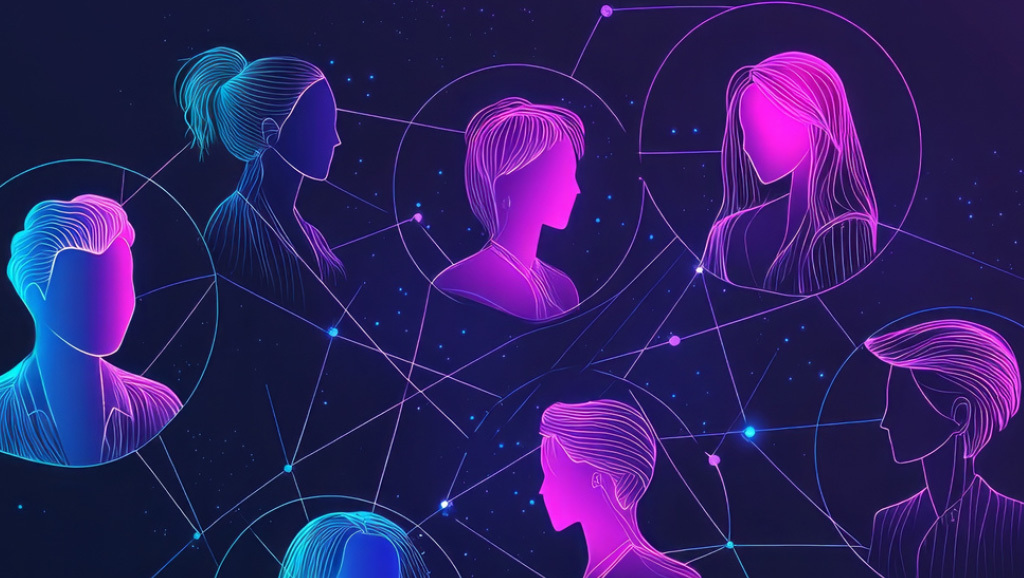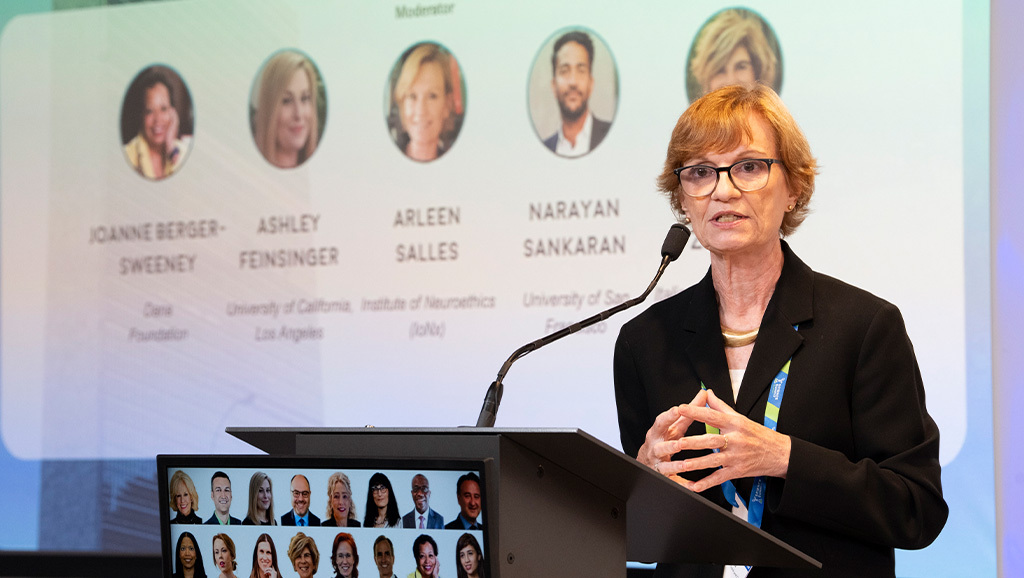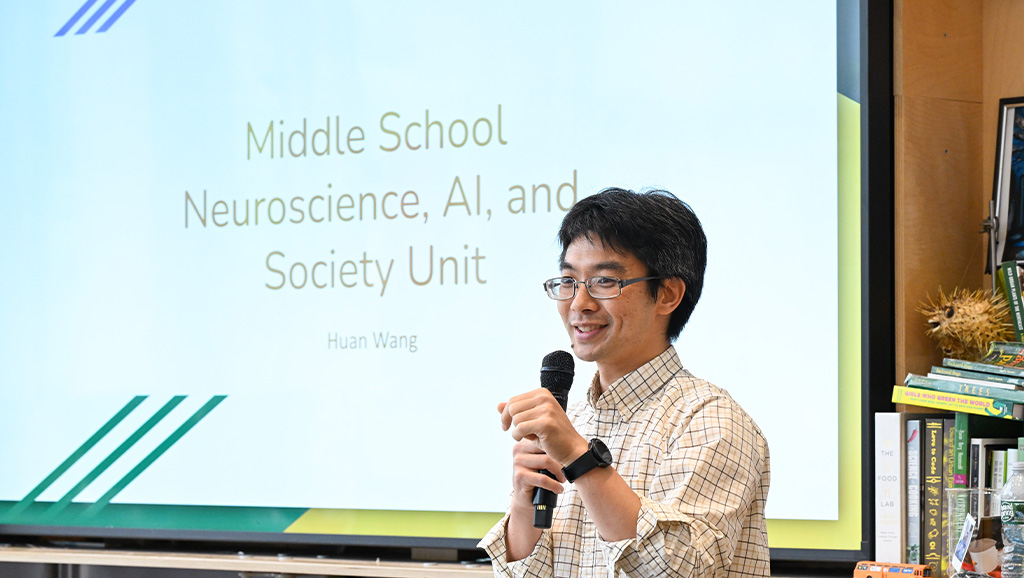News & Insights
Congressional Briefing Illuminates Power of Arts in STEM


While in Washington, DC, for the Society for Neuroscience’s annual meeting, the Dana Foundation teamed up with the American Brain Coalition (ABC), Allen Institute, and Northwest (NW) Noggin to host “Brains, Bagels, Synapses & Schmears,” a morning social aligned with the Congressional Neuroscience Caucus.
Since 2011, ABC has been partnering with the Congressional Neuroscience Caucus to sponsor neuroscience briefings, information sessions on research findings, congressional communications, and collaborations with other organizations to promote a better understanding of how the brain develops, functions, and ages. In recent years, the Dana Foundation has been a proud co-sponsor of several, including briefings on Youth Mental Health and Social Media, the NIH BRAIN Initiative, and Neuroethics.
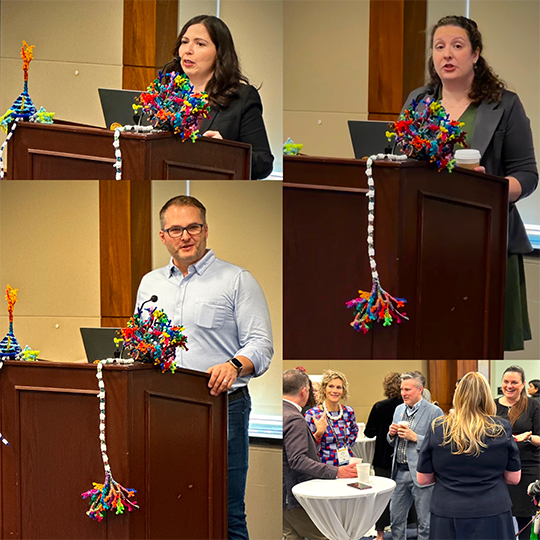

Photo courtesy of NW Noggin
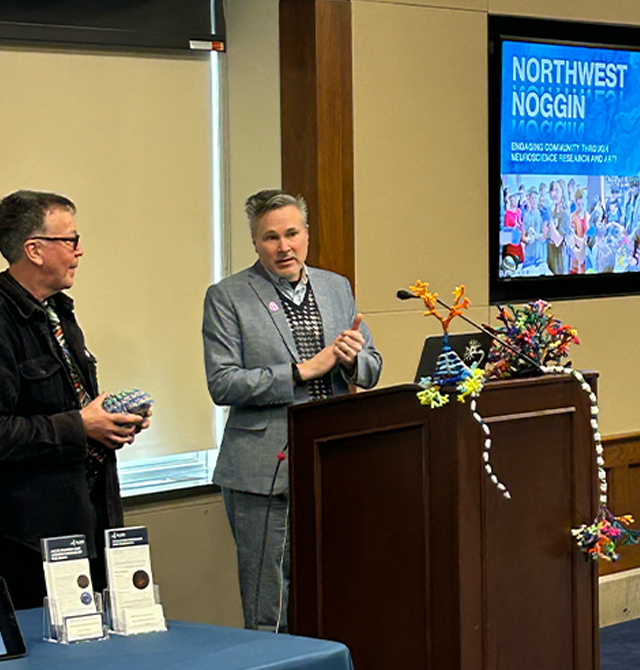

The November 13 meeting on Capitol Hill invited event co-sponsors the Allen Institute, NW Noggin, and the Dana Foundation to highlight their programmatic priorities in brain science to Congress people and their staff.
Staff from the Allen Institute shared a presentation about the importance of open science—one of the core principles that guides the institute’s work—in its ability to accelerate research, promote transparency, and introduce new techniques and skills to students that are critical for science careers.
NW Noggin co-founders Bill Griesar and Jeff Leake introduced their organization and its focus on an arts-integrated approach to STEM education. “There’s such power in going to places where you’re not the expert, and you actually have to listen…We’re going to places where there’s no tuition, no entry, and that novelty of being there and being challenged really makes your brain more plastic in those moments,” said Griesar.
Comprised entirely of volunteers, NW Noggin’s goal is to bring together scientists, artists, and students to excite and inform the public about neuroscience research. They visit schools around the country and offer free talks, using art to teach STEM and making science more accessible by hosting events for K-12 students, houseless youth, museum visitors, pub-goers, and more.
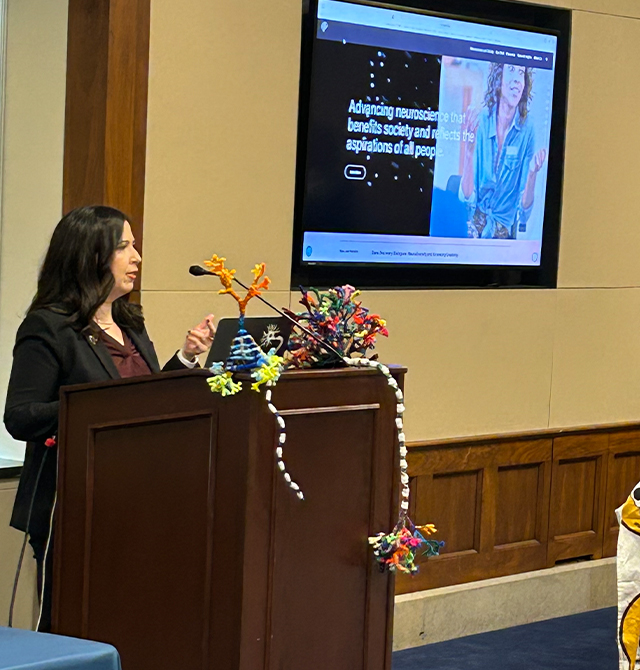

Dana Foundation Vice President of Neuroscience & Society Khara Ramos spoke on the Foundation’s three grantmaking programs—Dana Education, Dana NextGen, and Dana Frontiers, which aim to strengthen neuroscience’s positive role in the world through education, training, and public engagement. She also highlighted a 2022 survey commissioned by the Dana Foundation in partnership with Research!America, which showed that brain health is a top priority for Americans.
Closing out the remarks, Sale briefly highlighted ABC’s educational and advocacy efforts to raise awareness among policymakers about the brain. Its goal in hosting these Congressional Neuroscience Caucus briefings is to educate lawmakers and the public about the millions of Americans experiencing neurological disorders and mental illness.
The presentations concluded with an invitation for participants to socialize, co-mingling with coffee while visiting different tables where demonstrations of neuroscience education using a more creative, hands-on approach were taking place. (Learn how to make a pipe cleaner neuron here.)
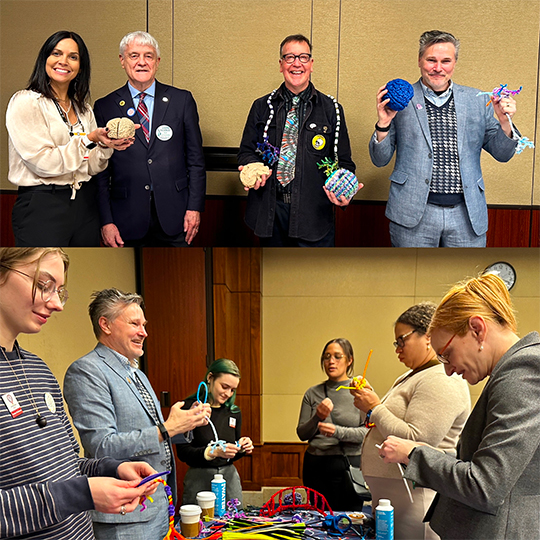

Photos courtesy of NW Noggin
“It’s a privilege to work with the Dana Foundation and other partners in the brain space,” said ABC executive director Katie Sale, “to highlight to Congress the importance of neuroscience and an arts-integrated approach toward education at all levels.”
Stressing the importance of being “on the ground in the community” and leading by example, the volunteer team from NW Noggin visited a public school in the DC area the following day to find out what young students wanted to learn—and what they already knew—about the brain. Dana Foundation staff accepted an invitation to join and thoroughly enjoyed making neuroscience art with kindergarten and grade school students as they learned about the brain.
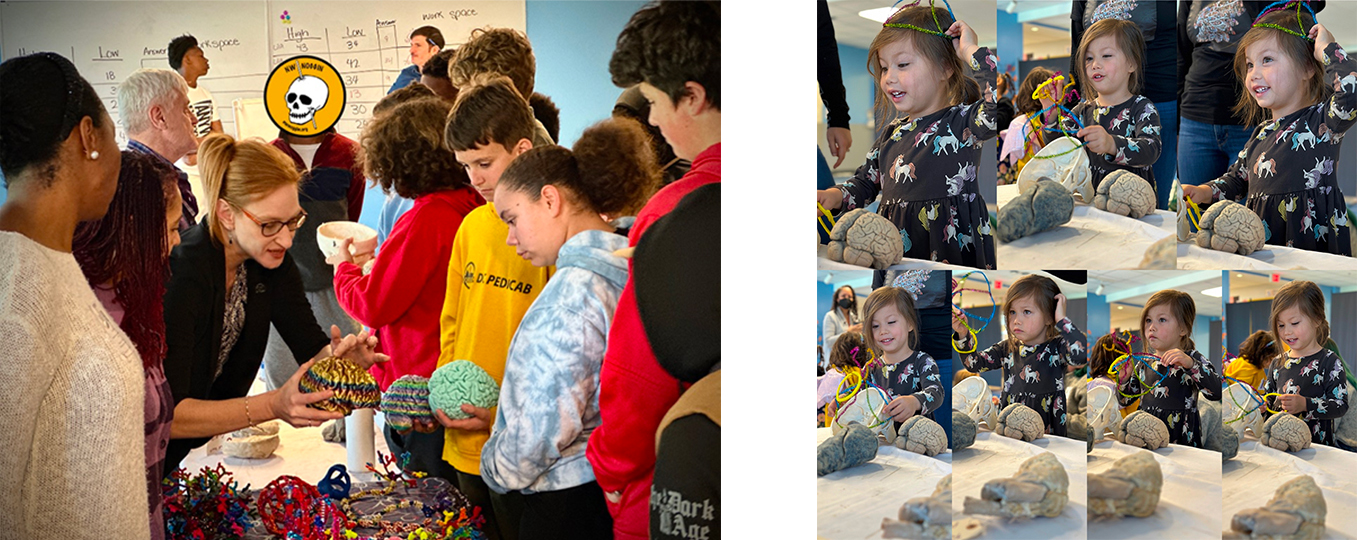

Photos courtesy of NW Noggin
